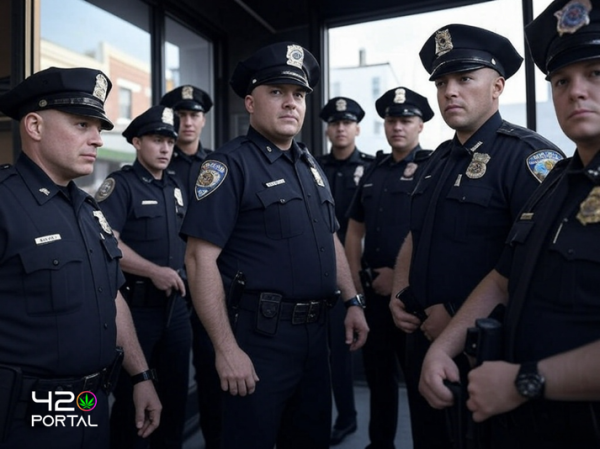D.C. Wages War on Illegal Cannabis Shops to Protect Legal Market

05/02/2025
Washington, D.C. has intensified its battle against illegal cannabis operations, with authorities recently padlocking another unlicensed shop in a vibrant neighborhood known for its nightlife and commercial activity. This closure represents a significant step in the city’s aggressive campaign to regulate the cannabis industry and safeguard the interests of licensed medical marijuana dispensaries. The targeted shop was found openly selling unauthorized products, including psychedelic mushrooms, which triggered a swift police raid. Officers confiscated a range of illegal items and arrested one individual, sending a clear message about the city’s zero-tolerance stance on non-compliance.
The crackdown is part of a broader strategy to address the proliferation of so-called “gifting shops,” which exploit legal loopholes by offering marijuana as a “gift” with the purchase of unrelated items like stickers or snacks. These businesses have long frustrated regulators and legal dispensary owners, who face high operational costs and stringent oversight. Authorities are pushing to transition these shops into fully licensed medical dispensaries, but the process is fraught with challenges.
Licensing fees, which can reach tens of thousands of dollars, combined with annual renewals and compliance requirements, create significant barriers for businesses attempting to go legitimate. Despite these hurdles, dozens of unlicensed shops continue to operate, often in plain sight, drawing ire from legal retailers struggling to compete.
Licensed dispensaries, grappling with declining sales and an oversaturated market, have been vocal proponents of stricter enforcement. Many have reported illegal competitors to the city’s cannabis task force, which has adopted a methodical approach to enforcement. The task force issues warnings and cease-and-desist orders before resorting to padlocking non-compliant shops. While padlocking doesn’t always guarantee permanent closure—business owners can request hearings to present remediation plans—officials estimate that dozens of illegal operations, including those running online, remain active across the city.
The enforcement push has sparked heated debate. Legal dispensary owners argue that unlicensed shops undermine their businesses by offering lower prices and evading taxes and regulations. They contend that a fair market is essential for the long-term viability of the medical marijuana industry. Conversely, some critics argue that the city’s stringent measures disproportionately harm small businesses and entrepreneurs attempting to navigate the costly and complex licensing process. These critics advocate for more supportive policies, such as financial assistance or streamlined regulations, to help businesses transition into the legal market without facing punitive consequences.
Reference
The crackdown is part of a broader strategy to address the proliferation of so-called “gifting shops,” which exploit legal loopholes by offering marijuana as a “gift” with the purchase of unrelated items like stickers or snacks. These businesses have long frustrated regulators and legal dispensary owners, who face high operational costs and stringent oversight. Authorities are pushing to transition these shops into fully licensed medical dispensaries, but the process is fraught with challenges.
Licensing fees, which can reach tens of thousands of dollars, combined with annual renewals and compliance requirements, create significant barriers for businesses attempting to go legitimate. Despite these hurdles, dozens of unlicensed shops continue to operate, often in plain sight, drawing ire from legal retailers struggling to compete.
Licensed dispensaries, grappling with declining sales and an oversaturated market, have been vocal proponents of stricter enforcement. Many have reported illegal competitors to the city’s cannabis task force, which has adopted a methodical approach to enforcement. The task force issues warnings and cease-and-desist orders before resorting to padlocking non-compliant shops. While padlocking doesn’t always guarantee permanent closure—business owners can request hearings to present remediation plans—officials estimate that dozens of illegal operations, including those running online, remain active across the city.
The enforcement push has sparked heated debate. Legal dispensary owners argue that unlicensed shops undermine their businesses by offering lower prices and evading taxes and regulations. They contend that a fair market is essential for the long-term viability of the medical marijuana industry. Conversely, some critics argue that the city’s stringent measures disproportionately harm small businesses and entrepreneurs attempting to navigate the costly and complex licensing process. These critics advocate for more supportive policies, such as financial assistance or streamlined regulations, to help businesses transition into the legal market without facing punitive consequences.
Reference







